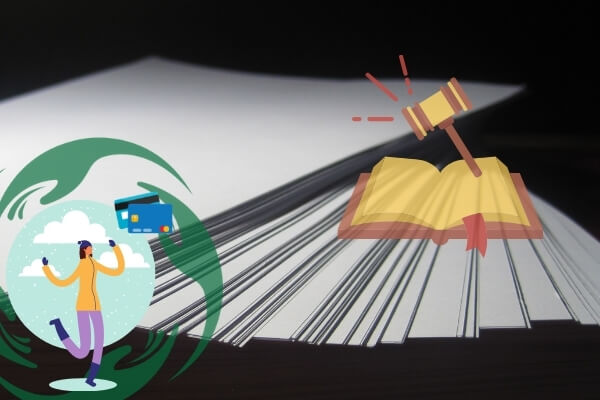There’s a good chance that you haven’t heard of the Credit Contracts and Consumer Finance Act (CCCFA), but it’s an important one! It’s the Act that protects you when you borrow money or buy products or services on credit. So, if you are using a credit card, getting a personal loan, using a store card or have resorted to a payday loan then this is an important read.
The Act requires lenders to always act responsibly and to ensure that you, the borrower, are making informed choices and know what you are agreeing to. There are certain things lenders must tell you when you borrow money. This is called disclosure of information.
For example, lenders must:
- make standard terms and costs of borrowing publicly available via their website or on clearly displayed notices at their premises. This helps borrowers compare the cost of borrowing and contract terms, and to shop around.
- give you important information in writing before you sign an agreement, eg annual interest rate, all fees, how you can cancel, details of their dispute resolution scheme.
Most lenders are responsible and provide the information about the loan etc, and meet these obligations already, but knowing how much your credit is costing you does not stop the lenders from charging fees and interest rates that make it almost impossible for you to repay the loan!! For this reason, the Act has been reviewed and changed.
Some amendments to the Act will come into force from 1st October 2021. You can read about the changes to the Act in more detail here.
Lenders will be working under new prescriptive requirements when assessing the affordability and suitability of loans. Additional registration and compliance will be required to be undertaken by lenders, and the responsible advertising standards also have new regulations.
One recent change to the Act means that lenders can no longer charge a total of more than twice the amount of the original loan (also called the principal).
For example, if you take out a loan of $150 to cover an unexpected bill, the lender can’t charge you more than $300. Previously a $150 loan could end up costing you hundreds more than that if you were charged high interest rates, late payment fees, etc. – borrowers could be paying back a lot more than twice the principal.
That is still a large amount of extra money to be paying off your loan, so it is important that you go into a situation with your eyes open – look out for the ways in which you will incur extra charges. These could be late payment fees, or ironically also early repayment fees!

Newsletter March 2024
Kia Ora! In this newsletter: Hot tip of the month - Hate the thought of a budget? We have a Jedi mind trick for you! Did you know -Unravelling the mystery: The world’s oldest stock exchange First-home buyer tips - Why you need a pre-approval Thoughts from Elise ...

Newsletter February 2024
Kia Ora! In this newsletter: Hot tip of the month - Bring your loan term forward and save big bucks Did you know - Win your next quiz night with this bit of trivia! First-home buyer tips - How to keep your KiwiSaver deposit safe Thoughts from Elise Property -...

Are your savings structured correctly?
Life is full of both the planned and the unexpected. You plan to buy a home and eventually retire, but you don’t expect to need four root canals at once. So, how do you save for both the known and unknown?

Newsletter December 2023
Kia Ora! In this newsletter: Hot tip of the month - The transaction account that makes you money Did you know - Disabilities are common, let’s look after each other First-home buyer tips - Bothered by building inspection costs? Think of the cost of not doing one!...

How to Choose the Right KiwiSaver Provider
KiwiSaver is vital to preparing for retirement, so choosing the right KiwiSaver provider matters!

Newsletter November 2023
Kia Ora! In this newsletter: Hot tip of the month - Summer is coming – Get checked out so you don’t check out! Did you know - Who gets what when you die & why you should care First-home buyer tips – Buying a home doesn’t mean your life is over! Links to latest...

The Power of Compounding Interest
When planning for retirement, compounding interest is one of the most significant factors influencing your financial future. Understanding how compounding interest works and its impact on different investment strategies is crucial for informed financial planning.

Newsletter October 2023
Kia Ora! In this newsletter: Hot tip of the month - Make the most of your vote Did you know - How long will you live? First-home buyer tips – The property market is on the move – get in now Links to latest blogs Thoughts from Elise Property - Not a lot of choice...

Newsletter September 2023
Kia Ora! In this newsletter: Hot tip of the month - Interest-free loans for energy efficiency projects from Westpac Did you know - You could be eligible for government support First-home buyer tips – Impress lenders by living as if you have a mortgage Links to...

Credit Card Crisis? A Credit Card Balance Transfer May Be Your Answer
Whether you’re deciding on the structure of your 1st mortgage or your 10th, it’s worth thinking things through. It could save you from a mortgage unfit for purpose, costly restructuring fees and even thousands in interest over the long term.

